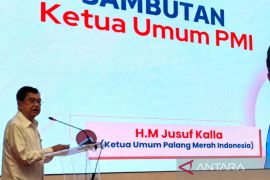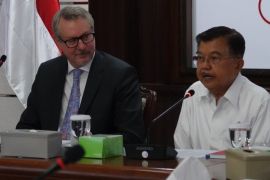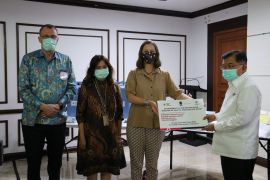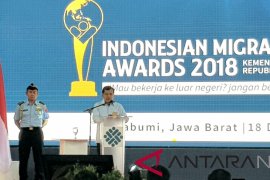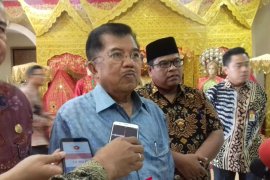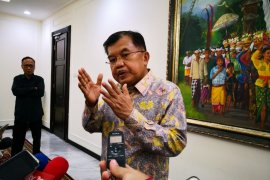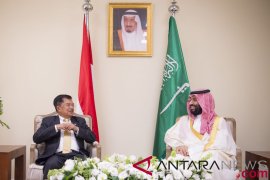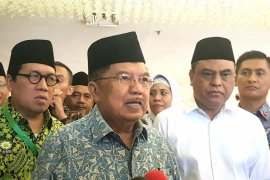He believes that good-quality education would become a key driving force to transform Indonesia into a well-developed nation if it were to be offered fairly and equally to Indonesians across the archipelago.
In the absence of good-quality education, Indonesia will be unable to produce well-trained, educated, and brilliant human resources that are, in fact, the driving force to make Indonesia a developed and highly competitive nation in the world, he expounded.
Related news: VP encourages development of a modern education system
Related news: Research, technology, and education should embrace future trends: VP Kalla
Undeniably, varied efforts have been made to improve the quality of education, including revising the curriculum and apportioning 20 percent of the state budget for education as mandated by the 1945 State Constitution, Kalla pointed out.
To this end, progress in education is closely linked to the economy.
"We cannot speak too much about a remarkable progress in education if our level of economy remains low or our economic growth cannot yet be increased," he cautioned.
Related news: President Jokowi conveys appreciation towards Jusuf Kalla
Related news: At UN, Kalla says Indonesia to become advanced country by 2045
However, remarkable economic development can only be realized if the country has well-educated and trained human resources, Kalla stated, while emphasizing on improving the quality of human resources through education.
Meanwhile, Rector of the Padang State University Professor Ganefri remarked that the UNP had awarded the honorary doctoral degree to Kalla in recognition of his noteworthy role and contribution to quality assurance in primary and secondary education in Indonesia.
Kalla made it possible through consistent implementation of the national examination as one of the primary instruments to improve the quality of primary and secondary educational levels that affect the quality of senior high school graduates that were admitted in universities, he stated.
According to ANTARA, Indonesia, as the world's fourth most populous country, has yet to rank on the list of the world's most literate nations.
John W. Miller's study (CCSU, 2016) indicated that the top 10 most literate nations are Finland, Norway, Iceland, Denmark, Sweden, Switzerland, the United States, Germany, Latvia, and the Netherlands.
The study of Miller, a noted researcher at the Central Connecticut State University, further revealed that Indonesia had ranked 60th out of the 61 countries, performing slightly better than Botswana though lagging far behind Singapore that stood 36th and Malaysia on 53rd position.
His study synthesized "literacy achievement tests (Progress in International Reading Literacy Study and Programme for International Student Assessment) and literate behavior characteristics (population, newspapers, libraries, years of schooling)" (2016).
Related news: MPR seeks Jusuf Kalla's inputs on Constitution
Related news: Indonesia takes role in efforts to save the earth: Kalla
Translator: Laila S, Rahmad Nasution
Editor: Yuni Arisandy Sinaga
Copyright © ANTARA 2019

